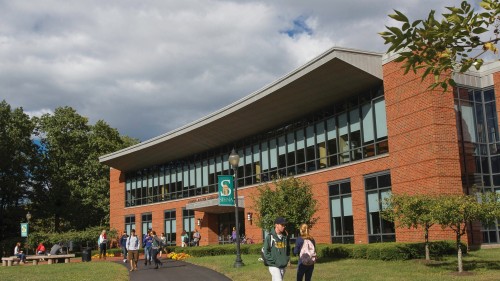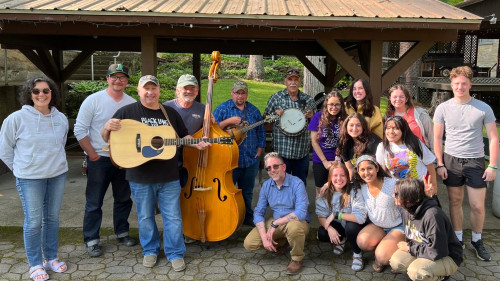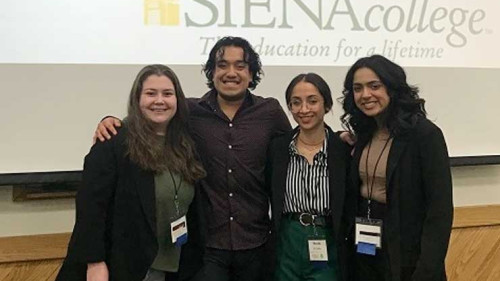
A food desert is a location where people have difficulty accessing nutritious affordable foods. Perhaps grocery chains do not want to open a store there, or financial support is not available for an independent store. Often those who live in these neighborhoods have to rely on the chips, sodas and snacks offered at corner convenience stores.
Giavanna Pitagno ’24 is working with Siena’s Center for Academic Community Engagement (ACE) to address at least part of this problem for Albany’s underserved South End. She is reaching out to local growers to organize supplies of fresh produce to be sold at the neighborhood’s weekly South End Night Market at Grand and Warren streets.
Seasonal vegetables are available each Thursday evening for area residents, who can pay with cash or SNAP benefits. Government guidelines stipulate that SNAP (also known as food stamps) must be used for healthy food items.
The Night Market did have farmers bringing in their produce last year, but they did not renew their booths for this season. Pitagno connected with Giffin Memorial School in Albany, which operates a vegetable garden with student workers; Altamont Fairgrounds, Albany Victory Gardens, and some small local growers. Through fliers and word of mouth, she is working to increase the amount of produce sold at the market this season and next.
“This is a way to bring wealth back into the community,” said Pitagno. “People can put money in their neighbor’s pocket, rather than support a large chain business.”
She said sales, which started in July, have been good and the program is self-supporting.
ACE is working with the Community Investment Trust in Albany to select a multi-use property for purchase that could house an independent food market, among other businesses.
Pitagno and ACE are also working with South End residents to keep up vacant lots in the neighborhood – if they are tended for one year, the City of Albany will grant $1,000 to an individual or organization to maintain a community garden.

